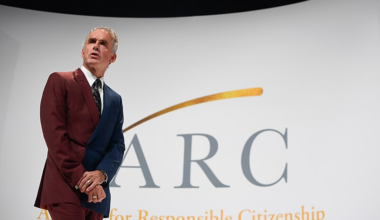As a past and present adherent of two major religions—initially, I was a Christian missionary and now I am a Buddhist priest—I have long pondered the meaning and significance of religion. However, while Buddhism has answered far more of my spiritual questions than Christianity once did, it was only as a result of my encounter with the Shinto faith that my remaining spiritual questions were resolved.

Like the typical visitor to Japan, I initially regarded Shinto as the quaint if not simplistic faith of the Japanese people. However, when placed in its historical context, I realised that Shinto was one of the last remaining major expressions of a much older faith, namely animism (typically described in Western countries as ‘paganism’).1 Further study led me to the realisation that animism, with its panoply of mostly nature-affiliated deities like a sun or a rain god(dess), was in fact the oldest form of religion about which, today, we have any trace. That is to say, animism is now widely acknowledged among scholars as the oldest form of religion, practised universally by our ancestors for tens, if not hundreds, of thousands of years.
Inasmuch as survival plus reproduction is generally recognised as the fundamental purpose of all life forms, the creation of sun god(s), rain god(s), fire god(s), etc. is unsurprising. For just as the creation of stone tools enhanced the evolutionary fitness of hunter-gatherers, the presence of nature-affiliated deities offered the possibility of controlling (and benefitting from) natural phenomena that were beyond any other method of control. In short, what we today identify as religion resulted from the fundamental human need to survive, though it should be noted that religion at this stage was centred on the needs of the entire tribe—to ensure plentiful water and animals to hunt and so on—rather than the spiritual needs of the individual tribal member. Today, we now have examples of tribal religious practices involving nature-affiliated deities dating back as far as 70,000 years ago (though these examples, it should be noted, are still the subject of scholarly debate).
Yet, if tribal-oriented, animistic religions can be traced back tens of thousands of years, if not longer, how does one account for the personal faiths we have today? For this, we are indebted to the insight of a German-Swiss philosopher by the name of Karl Jaspers (1883–1969). Jaspers noticed the broad changes in religious and philosophical thought that occurred throughout the entire world from about the 8th to the 3rd century BCE, now known as the Axial Age. He noted that the present-day spiritual foundations of humanity were laid nearly simultaneously and independently in China, India, Persia, Judea, and Greece. Among the key thinkers of this period, he identified Confucius and Lao-Tse in China, the historical Buddha and Mahavira in India, Deutero-Isaiah in ancient Israel2, and Socrates and Plato in Greece.
Though their teachings varied, all these thinkers shared three basic elements in common. First, ‘truth’ was universally valid, and its existence was no longer confined to one’s tribe. Second, morality/ethical conduct, too, was universal. While it had long been wrong, or taboo, to steal from or injure a fellow tribal member, the rule for members of other tribes was ‘anything goes’, especially when the latter posed a threat or possessed something coveted by one’s own tribe. At least in principle, those outside one’s tribe were now recognised as fellow human beings. Finally, the myths that had explained natural events like the eclipse of the sun, or the creation of the world, were no longer accepted uncritically. Slowly, haltingly, the search for rational answers to natural phenomena and life’s questions took root, eventually leading to the birth of science.
Not only did the Axial period mark the beginning of religion for individuals, but it also prepared the way for the emergence of all the major, universal religions we have today, whether Judaism, Christianity, Islam, Hinduism, or Buddhism.
One good example of this change in mentality is provided by the historical Buddha in regard to the doctrine of karma. In Sanskrit, the word ‘karma’ originally meant no more or less than an ‘action’ of some kind. Later, in the Vedas, which initially presented an Indian form of animism, ‘karma’ came to mean action associated with properly conducted ritual sacrifices to the gods. It was only later still, with the advent of the Buddha, that karma acquired an ethical connotation. The Buddha ethicised the meaning of karma by identifying it with intentional actions on the part of the actor. Thus, when actions were undertaken with wholesome intent, this was good and proper, reaping positive rewards. However, when actions were conducted with harmful intent, this was wrong, and those who did so would suffer the negative consequences of their actions.
Not only did the Axial period mark the beginning of religion for individuals, but it also prepared the way for the emergence of all the major, universal religions we have today, whether Judaism, Christianity, Islam, Hinduism, or Buddhism. That is to say, while there are major doctrinal differences between these faiths, they all share the same three basic characteristics born during the Axial Age. Thus, if there is hope for mutual religious understanding, if not religious tolerance, it is to be found in the fundamental tenets underlying them all.
However, given the copious amounts of blood that have been shed in conflicts between post-Axial faiths, it is readily understandable that readers may think I have a Pollyannaish view of religion. However, such is not the case, for I have long realised that the Axial Age did not bring an end to a tribal religious mentality. Instead, the Axial Age functioned to add something like an additional universal layer on top of limited tribal religion, the latter concerned first and foremost with the wellbeing of one’s ‘in-group’, whether defined by a common religious faith, ethnic and racial grouping, or simply membership in the new tribal grouping we call ‘nations’.

The ongoing wars in Ukraine and Gaza are classic examples of this religious ‘layer cake’. Prior to the war, the Ukrainian Orthodox Church (UOC), while it enjoyed a degree of autonomy, was part of the Russian Orthodox Church. After the invasion in February 2022, the UOC declared its independence from Russia. (The Orthodox Church of Ukraine—a separate church—had already gained independence in 2018.) Since then, the independent UOC has attempted to cut all ties with Moscow, dismissing pro-Russian bishops and having its head, Metropolitan Onufriy, publicly condemn Russia. For its part, in April 2024, the Russian Orthodox Church proclaimed that Russia was engaged in a ‘holy war’ with Ukraine. Although they shared the same God, the same faith, the split between them clearly came about due to their allegiance to the contending warring tribal entities we today call ‘nations’.
As for the current war in Gaza, it is, if anything, an even clearer example of the conflict between universal and tribal religion. For example, Prime Minister Benjamin Netanyahu did not hesitate to invoke the Biblical image of the Jewish tribal battle against the Amalekites.3 Last year, he said that Israelis ‘are committed to completely eliminating this evil [Hamas] from the world… You must remember what Amalek has done to you, says our Holy Bible. And we do remember.’
Netanyahu’s reference was to the first Book of Samuel in which God commands King Saul to kill all the Amalekites. God, says the prophet Samuel, has told the Israelites to ‘go and smite Amalek, and utterly destroy all that they have, and spare them not; but slay both man and woman, infant and suckling, ox and sheep, camel and ass.’ (1 Samuel 15:3).

Likewise, Israeli Defence Minister Yoav Gallant claimed that ‘We are fighting human animals and we act accordingly.’ While Gallant may have initially been referring to Hamas fighters, he went on to call for the collective punishment of all Palestinians in Gaza, stating, ‘We are imposing a complete siege on Gaza. There will be no electricity, no food, no water, no fuel. Everything will be closed.’ The tribal nature of Netanyahu and Gallant’s comments, and their complete dismissal of the shared humanity of Israelis and Palestinians, could not be clearer.
That said, it is important to acknowledge that there are Jews, including in Israel, who do recognise their shared humanity with Palestinians. Organisations like Jewish Voice for Peace and IfNotNow share post-Axial universal values of caring for the poor and oppressed, pursuing justice, and treating others with compassion based on their shared humanity.
If this analysis is correct, readers may be thinking that this tribal way of thinking is not unique to some adherents of Judaism, and they would be correct. One Christian example particularly relevant to the current situation in Israel/Palestine is the role played by ‘Manifest Destiny’ in American history. First coined in 1845, this term represented a collective mindset that viewed the expansion of the US as both necessary and ordained by God. As the US gained more territory, proponents of Manifest Destiny used it to justify the forced removal, enslavement, dehumanisation, and even elimination of Native American tribes, as well as the expansion of slavery into newly acquired territories.
Compare these actions with the words from Leviticus 19:33-34 that both Christians and Jews claim to believe in:
And if a stranger sojourn with thee in your land, ye shall not vex him. But the stranger that dwelleth with you shall be unto you as one born among you, and thou shalt love him as thyself; for ye were strangers in the land of Egypt: I am the Lord your God.
These examples point to an unresolved split in all religions, i.e. between their tribal nature, based on tens of thousands of years of history, versus their post-Axial awakening occurring less than three thousand years ago. This awakening was of profound importance in that it led, at least in principle, to a recognition of the universal nature of their religious teachings based on their shared humanity. This in turn led, at least some of the time, to a feeling of mutual compassion in which people recognised others as extensions of themselves, extensions who had the same human needs and fears as they themselves had.

The struggle between a narrow tribal mentality versus a truly universal mentality accepting of others is one that transcends all ethnic, racial, national, and even religious boundaries. Nevertheless, in the US, for example, the slogan ‘America First’ is embraced by millions, demonstrating that for many the tribal mentality remains firmly in place.
On the one hand, as brutal and destructive as religion-endorsed tribal warfare has been in the past, humanity as a whole was not endangered. Today, however, things are different. For the first time in the approximately 300,000-year history of Homo sapiens, we have the capacity to destroy each other not only in the tens of thousands, or even the millions, but totally, without exception. This is because of the very real possibility of ‘mutual assured destruction’ in the form of a nuclear-induced winter, not to mention the ever-increasing dangers resulting from phenomena like global warming. None of the deadly serious problems facing humankind as a whole can be solved by one or even a group of nations. They require the concerted efforts, and necessary sacrifices, of all the world’s nations and peoples.
Thus, adherents of all the world’s religions, and even those who identify with no faith, share a common challenge. Can we Homo sapiens collectively awake to, and transcend, the tribal religious mentality of our past or are we bound to continue to fool ourselves into oblivion, believing that we are pursuing universal truths even as we betray such truths in practice? In Ukraine, Gaza, and beyond, we live in a world characterised by the ongoing threat of thermonuclear warfare, global warming, and many other deadly challenges.
Can religion save the human race?
As an adherent of religion, I sincerely wish I could answer this question in the affirmative. However, in light of the above examples, and many others like them, I cannot. What I can say with confidence is that postaxial religion has the largely unrealised potential to prevent humanity from destroying itself. Yet, all too regrettably, this potential is far, far from being realised even though pockets of universal good will do exist. A positive outcome for humanity, let alone all life forms, requires that we undertake concrete actions based on the realisation that the continued existence of our species is, in fact, dependent on the success of a truly universal struggle, by the religious and nonreligious alike, for human equality, dignity, and justice.
Will we be successful? Among many others, the answer lies with each reader of this article.
- As a foundational aspect of various ancient and indigenous religions, animism is based on the belief that all things, animate and inanimate, possess a spiritual or animating force. ‘Paganism’ describes the same phenomena but the word as used to describe this belief system has pejorative overtones and is therefore no longer widely used. ↩︎
- Deutero-Isaiah is the name given to the anonymous author of chapters 40–55 of the Book of Isaiah. He (it was most likely a ‘he’) is believed to have lived with the Jewish exiles during their Babylonian captivity (c. 597 BCE – c. 538). Because this prophet’s real name is unknown and his work has been preserved in the collection of writings that include the prophecies of the earlier, or first, Isaiah, he is usually designated as Deutero-Isaiah—the second Isaiah. Deutero-Isaiah was a pure monotheist who rejected the idea of Yahweh as the exclusive god of the Jews. Instead, he proclaimed that Yahweh was the universal, true God of the entire universe. ↩︎
- The Amalekites were a people of the Negev and adjoining desert who were regarded as a hereditary enemy of Israel from wilderness times to the early monarchy. Amalek, a son of Esau’s son Eliphaz, was presumably the eponymous ancestor of the Amalekites. ↩︎
Read Part Two here.
Related reading
The rise and fall of god(s) in Indian politics: Modi’s setback, Indic philosophy, and the freethought paradox, by Kunwar Khuldune Shahid
Religion and the decline of freethought in South Asia, by Kunwar Khuldune Shahid
Can sentientism save the world? Interview with Jamie Woodhouse, by Emma Park
The Highbrow Caveman: Why ‘high’ culture is atavistic, by Charles Foster
‘The Greek mind was something special’: interview with Charles Freeman, by Daniel James Sharp
Image of the week: Anaxagoras, by Emma Park
‘The real beauty comes from contemplating the universe’: humanism with Sarah Bakewell, by Emma Park
Reading list against nuclear war, by Emma Park
Atheism, secularism, humanism, by Anthony Grayling
Morality without religion: the story of humanism, by Madeleine Goodall
The need for a new Enlightenment, by Christopher Hitchens
Can the ‘New Theists’ save the West? by Matt Johnson
Against the ‘New Theism’, by Daniel James Sharp
What has Christianity to do with Western values? by Nick Cohen
Religion and the Arab-Israeli conflict, by Kunwar Khuldune Shahid
Israel’s war on Gaza is a war on the Palestinian people, by Zwan Mahmod
Is the Israel-Palestine conflict fundamentally a nationalist, not a religious, war? by Ralph Leonard
Young, radical and morally confused, by Gerfried Ambrosch
Britain’s liberal imam: Interview with Taj Hargey, by Emma Park
White Christian Nationalism is rising in America. Separation of church and state is the antidote. By Rachel Laser








Your email address will not be published. Comments are subject to our Community Guidelines. Required fields are marked *
Donate